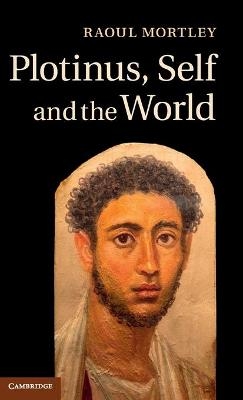
Plotinus, Self and the World
Seiten
2013
Cambridge University Press (Verlag)
978-1-107-04024-3 (ISBN)
Cambridge University Press (Verlag)
978-1-107-04024-3 (ISBN)
Examines the idea of the invention of the individual subjective self by Plotinus and its impact on the Christian tradition, asking about the self in its relationships - the self in love, in ignorance, in forgetfulness, in possession - and about the self and its own physical image.
Plotinus, Self and the World addresses the question of the individual subject in its relationship with the world, the 'all'. It traces the self through its experience of memory and forgetfulness, looks at whether the idea of the subconscious exists in Plotinus, and notes the probable impact of Plotinus' thought on the development of the autobiography, in the form of Augustine's Confessions. Augustine historicises the Plotinian individual self. The book reinterprets the idea of to oikeion in Plotinus and places great emphasis on the importance of the idea of 'having', and the ability to possess is itself linked to being: thus we are close to the idea of personal authenticity. Lastly the book examines Plotinus' view of images and art, and notes his respect for the beauty of the human face. His positive view of the physical world is stressed.
Plotinus, Self and the World addresses the question of the individual subject in its relationship with the world, the 'all'. It traces the self through its experience of memory and forgetfulness, looks at whether the idea of the subconscious exists in Plotinus, and notes the probable impact of Plotinus' thought on the development of the autobiography, in the form of Augustine's Confessions. Augustine historicises the Plotinian individual self. The book reinterprets the idea of to oikeion in Plotinus and places great emphasis on the importance of the idea of 'having', and the ability to possess is itself linked to being: thus we are close to the idea of personal authenticity. Lastly the book examines Plotinus' view of images and art, and notes his respect for the beauty of the human face. His positive view of the physical world is stressed.
Raoul Mortley is Professor and Dean in the Faculty of Humanities and Social Sciences, Bond University, Queensland.
Introduction; 1. The individuated self and memory; 2. Memory and forgetting; 3. Ignorance, love, and play; 4. Plotinus' Eros; 5. The self: 'And we too are kings'; 6. Being and having; 7. Self-knowledge; 8. Art and the seduction of beauty; 9. Face, image and the self; Conclusion.
| Erscheint lt. Verlag | 19.12.2013 |
|---|---|
| Verlagsort | Cambridge |
| Sprache | englisch |
| Maße | 144 x 222 mm |
| Gewicht | 330 g |
| Themenwelt | Geschichte ► Allgemeine Geschichte ► Vor- und Frühgeschichte |
| Geschichte ► Allgemeine Geschichte ► Altertum / Antike | |
| Geschichte ► Teilgebiete der Geschichte ► Religionsgeschichte | |
| Geisteswissenschaften ► Philosophie ► Philosophie Altertum / Antike | |
| Religion / Theologie ► Christentum ► Kirchengeschichte | |
| ISBN-10 | 1-107-04024-8 / 1107040248 |
| ISBN-13 | 978-1-107-04024-3 / 9781107040243 |
| Zustand | Neuware |
| Haben Sie eine Frage zum Produkt? |
Mehr entdecken
aus dem Bereich
aus dem Bereich
auf den Spuren der frühen Zivilisationen
Buch | Hardcover (2023)
C.H.Beck (Verlag)
CHF 27,95
Konzepte – Methoden – Theorien
Buch | Softcover (2024)
UTB (Verlag)
CHF 55,85
Was Pompeji über uns erzählt
Buch | Hardcover (2023)
Propyläen (Verlag)
CHF 44,75


